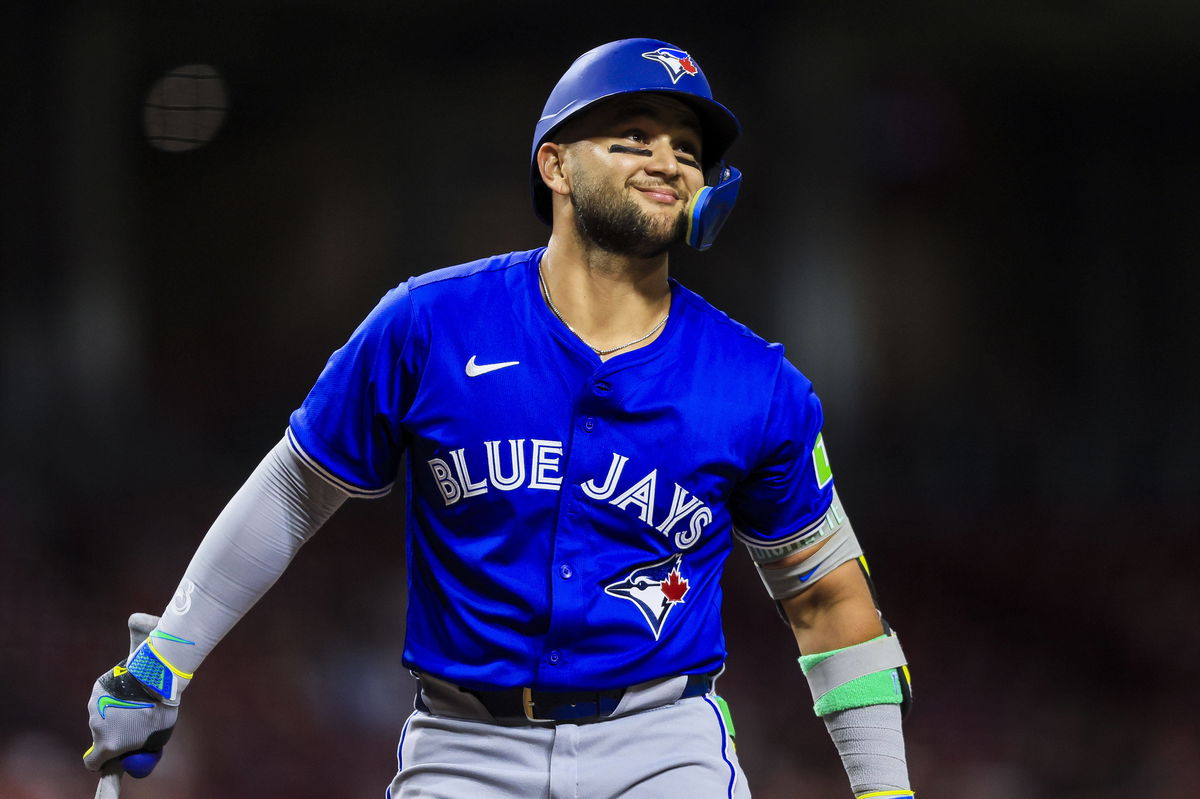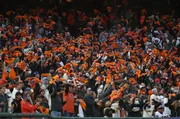
Imago
Credit: IMAGO

Imago
Credit: IMAGO
The last time the Toronto Blue Jays were at the World Series stage was during their glory days back in the 90s. This time, their journey till here has been no less than a WS altogether, fighting it out with the Seattle Mariners in a seven-game ALCS. And now, there is a pressing question among Jays fans, though—will Bo Bichette actually return?
Watch What’s Trending Now!
The shortstop has not played since September 6, when he sprained his knee sliding into home at the New York Yankees Stadium. His recovery has been one that’s been wrapped in mystery, given the team has called his status “day to day” for weeks now. But finally, after the champagne popped after the ALCS win, Bichette spoke up.
“I’ll be ready,” is the statement that Bichette broke the silence with. But even after that, getting him back can be problematic and maybe even cost the Jays.
ADVERTISEMENT
The Athletic just pointed out one major issue.
“How the Jays fit both Springer and Bichette in the lineup will be one of the series’ most pressing questions.” And it makes complete sense.

Imago
Credit: IMAGO
There is no doubt that Bichette has made progress in rehab; it’s something even manager John Schneider has confirmed. Still, the question is not just if Bichette returns; it’s how much he will be able to actually play.
ADVERTISEMENT
The 27-year-old, after all, has not faced live pitching in six weeks. And no matter his stellar talents, slashing .311/.357/.483 with 18 homers—shaking off rust in the World Series is no easy feat.
ADVERTISEMENT
On the other hand, Springer has been the team’s designated hitter this postseason, and his game-changing homer in Game 7 sent Toronto to the World Series. He did it through a painful knee bruise, too. So, if Bichette can’t play shortstop defensively right away, does he take Springer’s DH spot?
That’s the burning question right now the front office needs to tackle.
Meanwhile, the Dodgers, led by Ohtani, are looking to be baseball’s first repeat champions in 25 years. They have gone 9-1 this postseason and look like the “evil empire” everyone calls them.
ADVERTISEMENT
For the Jays, Bichette’s return could be the spark they need and help the lineup anchored by Vladdy and Springer. But if he is not ready, then Toronto might risk its momentum, chemistry, and rhythm. And that is the last thing needed, especially when Toronto is not playing just to win but to challenge a narrative.
Blue Jays step in to challenge the “Big Market vs. Small Market” narrative!
When the Los Angeles Dodgers ended up clinching the NL pennant, Dave Roberts dropped his guard and said what everyone was thinking. “Before this season started, they said, ‘The Dodgers are ruining baseball.’ Let’s get four more wins and really ruin baseball!” It was not a joke; it was Roberts tapping into a real sentiment that has been brewing in the baseball fans’ minds for a while. Then came the Toronto Blue Jays, a rather unexpected antidote to that narrative.
ADVERTISEMENT
The idea floating around is simple—the Dodgers, with their massive payroll, are buying championships and deepening the MLB economic divide. They are also pushing for owners to close in on a salary cap.
But the truth is that even the Toronto Blue Jays are no Cinderella story, where they are simply trying to scrape by.
Top Stories
Blue Jays Told to Thwart Dodgers’ Plan After Scott Boras Pushes 24-Year-Old Star to Reject Reds’ Historic Deal

Angels Finally “Cave in” After Denying Financial Aid to 22-YO Prospect, Whose Baseball Career Tragically Ended

Red Sox Warned Against Risky Marcelo Mayer Gamble Amid Willson Contreras Position Dilemma

Prayers Pour in as Beloved MLB Community Icon Drops Unfortunate News Amid Cancer Battle

3 MLB Teams Get Sued: “Systematically Cheated Fans Out of Millions of Dollars”

The Jays’ payroll sits at $240 million, which is the fifth highest in the league. And they are back in the WS for the first time since 1993. They were also rumored to have signed Shohei Ohtani, and sources even said he was on a plane to Toronto to sign once. Sure, it ended up being false news, but the fact is that Toronto was ready to shell out the same amount, the same everything, to land Ohtani and had no budget issues. So sure, the Dodgers spend big, but they are not the only ones.
ADVERTISEMENT
Plus, LA invests smartly in player development, scouting, and analytics, and they are building a model that is no secret and that other teams can emulate, too. But they could only do so if they wanted.
The problem, it seems, is not LA spending too much; it’s just that the other teams are spending less. Toronto’s resurgence shows that money is not everything; it’s about the timing, the execution, and the identity.
The Toronto Blue Jays slugged all the way to reach this point and now stand as the baseball fans’ best hope to break the “big market vs. small market” script.
ADVERTISEMENT
ADVERTISEMENT
ADVERTISEMENT
ADVERTISEMENT